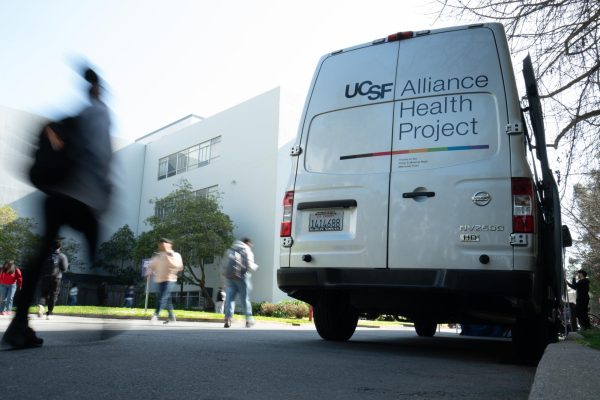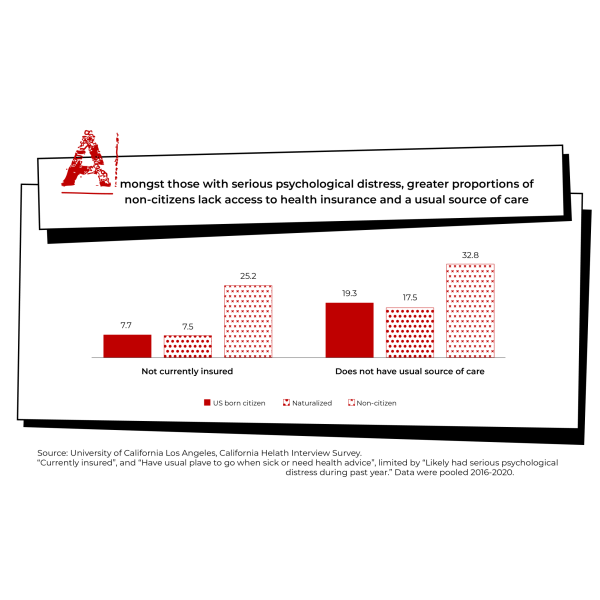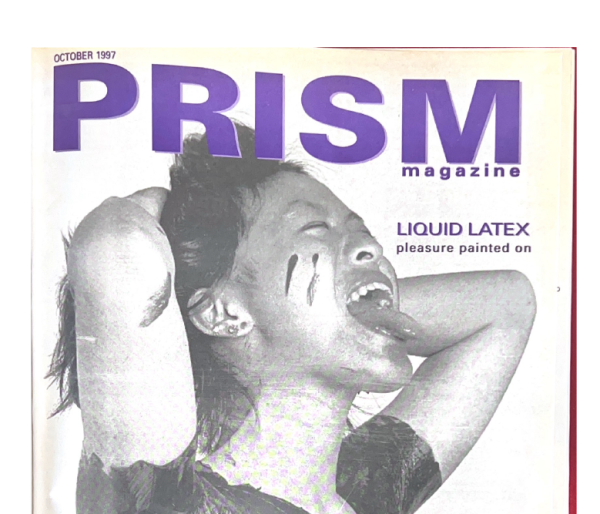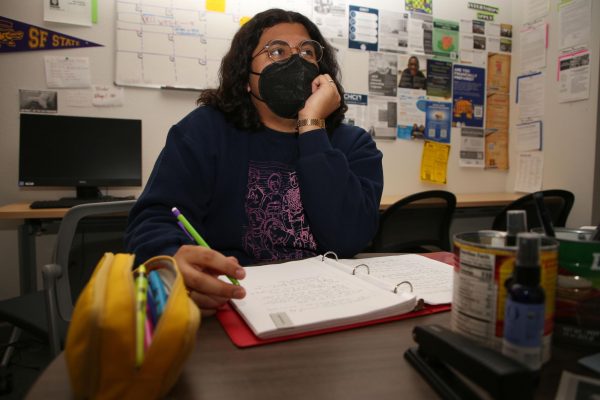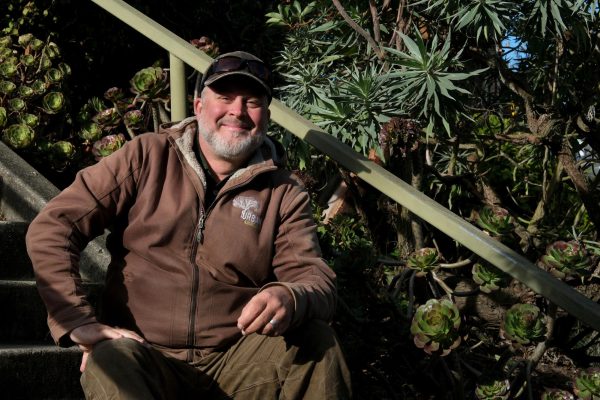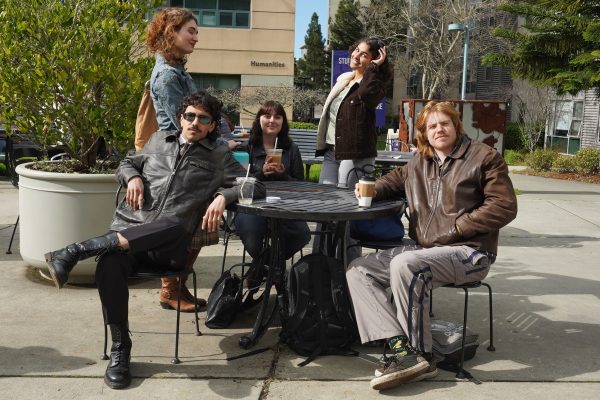Competing for a Body
College students indulge in social media while at home in San Francisco, Calif. (Morgan Ellis / Xpress Magazine)
Join Xpress Magazine’s Ximena Loeza as she discusses personal experiences of disordered eating with special guest Allison Correia.
The following article contains content about disordered eating.
Eating disorders have been changing and evolving with the internet for years. With the increased popularity of social media sites such as Instagram and TikTok, many people have found dangerous online communities surrounding disordered eating.
Pro-ana, which refers to “pro-anorexia,” is a community that promotes the behaviors of anorexia nerviosa.
Those in this community compare bodies with one another to see who can become the thinnest or the sickest. Progression photos and videos hashtagged with #proana, #thinspo and #thinspiration, both referring to “thin inspiration,” are known as “body checks.” This practice has floated from Tumblr to Instagram and can now be seen on TikTok.
The Mayo Clinic defines eating disorders as, “serious, complex and potentially life-threatening mental illnesses. They are characterised by disturbances in behaviours, thoughts and attitudes to food, eating and body weight or shape.”
Allison Correia, a 22-year-old Tracy, California resident, is currently recovering from disordered eating. She explains that her eating disorder started in high school after a doctor’s visit where she was put on a restrictive meal plan to lose weight.
“At that point, I was weighing about 360 (lbs) and my doctor told me that I was probably going to end up dying prematurely because of my weight and what it was doing to my body,” Correia says. As a solution, Correia’s doctor put her on a meal plan.
“I got down to like 180 (lbs). But I was also eating less than 1000 calories every day. So my body basically went into starvation mode,” says Correia.
Even though she dropped the weight quickly, Correia was getting numerous compliments from people who told her she looked healthy. She took this as a sign to continue.
Correia’s story is proof of how broken the medical and nutrition industries really are. The American Medicine Association Journal of Ethics says though a majority of Americans are medically overweight, weight discrimination has risen to 66% since 1995, especially among plus-size women.
“We’re starting to see the change when we go to conferences,” says Gretchen George, an associate professor and co-lead of Dietetics and Nutrition at San Francisco State University. “Most old-school dieticians would put someone on a diet if their BMI was 30 or above…I think doctors often assume that every problem would be solved by weight loss, which is not the case.”
George says many things come into play when it comes to nutrition, such as class, race, cultural differences and geographic location.
There are many misconceptions about eating disorders that give a distorted view of what they truly are. According to a 2009 article titled Eating Disorders in Ethnic Minority Women, it was historically thought that eating disorders only affected middle and upper-class white women. The article, which was published in Current Psychiatric Reviews, states that this belief is something that has even infiltrated the nutrition and medical industry.
Natalie Makardish is a 36-year-old mental health practitioner, fitness instructor and dance educator who has been working with people with eating disorders for over a decade. She says trauma in someone’s life can lead to eating disorders.
“I would just say that all of my clients who are in recovery from an eating disorder have experienced a form of trauma at least once in their life. And this is not to say that every individual who is diagnosed with the eating disorder has experienced trauma,” says Makardish.
Pinar Robles is a 24-year-old dietetics student at San Francisco State, as well as a student co-subcommittee leader of EDucate, a student-run organization at the university that provides education on eating disorders. When talking about the misconceptions of eating disorders, she mentions that a lot more aspects go into eating disorders than just body image.
“I believe that eating disorders are more than about physical appearance. There are a lot of emotional and mental aspects that go into having an eating disorder,” Robles says.
Social media has highly contributed to eating disorders, whether it is with distorted body image, diet culture or exercise culture. Eating disorders continue to evolve with each platform, from Tumblr in the early 2010s with the hashtag #proana, to Instagram with #thinspo, to TikTok today with body check and “what I eat in a day” videos, where people document each meal they consume in a particular day. And it seems to never die out.
“It shows you based on their algorithms. It gets into your brain and makes you believe that, like, ‘Oh, I need to look like this.’” says Correia.
Carmen Castro, 31, is an intern at a private nutritionist practice and a full-time nutrition student at San Francisco State, as well as a co-subcommittee leader of EDucate with Robles. She speaks about the constructed ideal body type that has been popularized by social media.
“I think my definition right now — and it’s always changing — of the ideal body is any body that you’re not in currently right now,” Castro says. “And that looks different for everyone.”
Although she is fully against it, Correia can relate to the continuous support and promotion of eating disorders, which is sometimes disguised on social media as “helping others.”
“It really saddens me because I know how loud the eating disorder voices are, and how much they can lie and manipulate you into thinking like, ‘If I just don’t eat, or if I keep eating till I can’t breathe, then for a moment, I’ll be numb,’” said Correia. “’And that’s all I need.’ But it’s so unfortunate to think that with that pro-ana, or with thinspo, and all that stuff, it all starts somewhere.”
Eugenia Cooney is a large influencer in the pro-ana community who has been making makeup tutorials and shopping haul YouTube videos for almost 10 years. However, she is not known for her videos so much as for her eating disorder which she has spoken about publicly.
In a 2019 documentary piece with fellow YouTuber Shane Dawson, Cooney talks about her experience getting treatment for her eating disorder. Many of her video comments are about the way she looks and her eating disorder, but she fails to address them.
Castro speaks about how it makes her sad to hear Cooney’s story, because of Cooney’s denial of and apparent suffering with this illness. However, Castro does not have compassion for pro-ana sites or influencers that give tricks and tips for eating disorders.
“I really struggle with when those sites offer tips, recommending that these are the behaviors that you should do,” said Castro. “And therefore, I really struggle with working on still having compassion, because I’m like, you are educating others in these really harmful behaviors. We know that eating disorders are second to opiate overdose for mortality rates. It’s the second deadliest mental illness.”
Makardish spoke about how the internet and eating disorders could be about more than just competition and advice for people who are recovering, but also about searching for a community or a place of acceptance.
“It’s about being within a space that others may understand,” Makardish says. “It’s intoxicating for an individual who is very much isolated, and simultaneously in communion with others who may be suffering alongside them.”
Editor’s note: an earlier version of this article labeled Carmen Castro as a committee member and Pinar Robles as a student leader of EDucate. The article has been updated to reflect their shared title of co-subcommittee leader.
If anyone is struggling with an eating disorder, they are urged to contact a healthcare professional. NEDA, the National Eating Disorder Association, is a good source. For help finding resources on the San Francisco State Campus, CAPS will help provide and connect you, as well as EDucate, a student-run organization providing resources for people with eating disorders. There is also the group, the Body Positive, which holds meetings on promoting body positivity on campus.
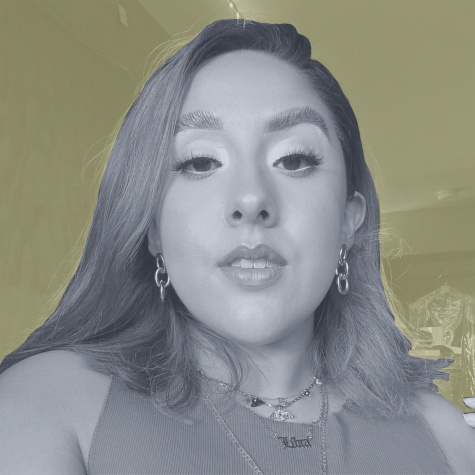
Ximena Loeza (she/they) is a 22-year-old Bay Area native. She enjoys writing about beauty, fashion, social justice, queer culture, and all things pop culture.


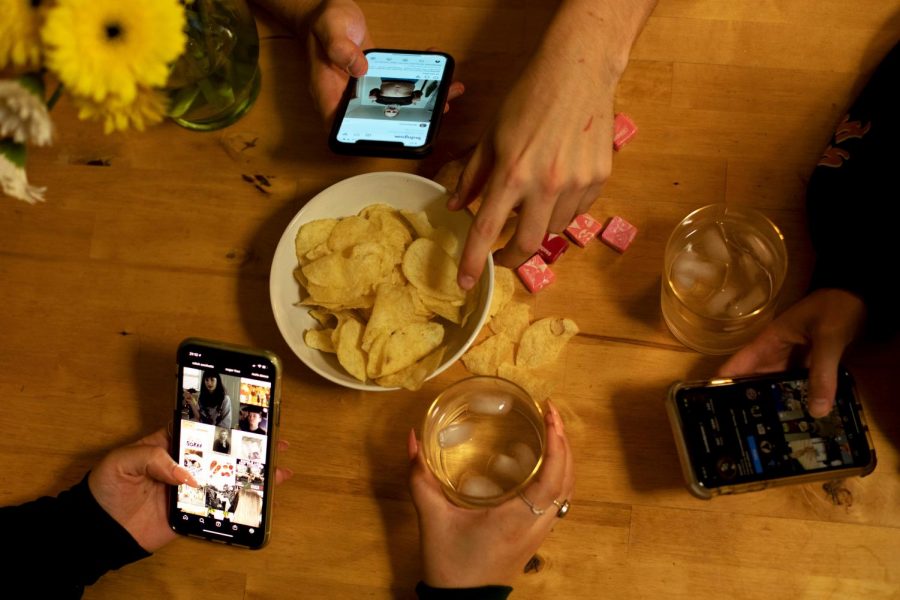
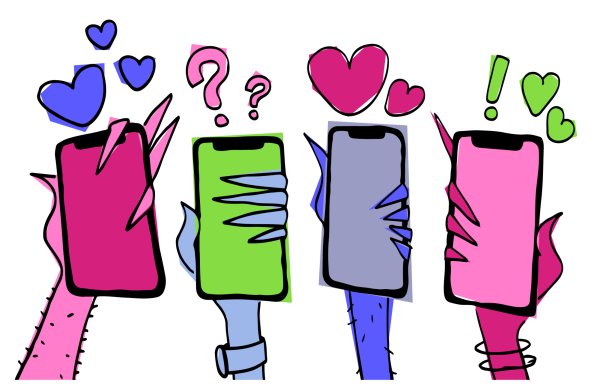
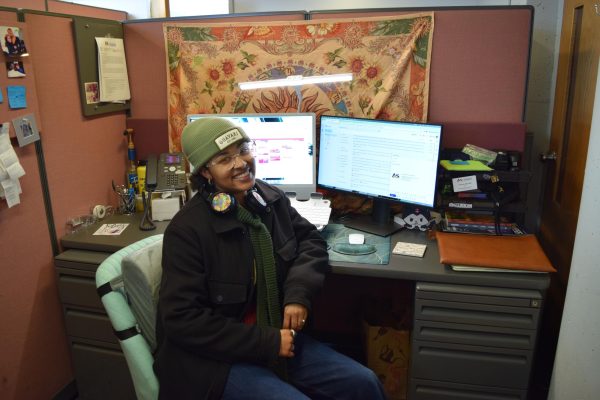
![[From left to right] Joseph Escobedo, Mariana Del Toro, Oliver Elias Tinoco and Rogelio Cruz, Latinx Queer Club officers, introduce themselves to members in the meeting room on the second floor of the Cesar Chavez Student Center.](https://xpressmagazine.org/wp-content/uploads/2024/03/mag_theirown_DH_014-600x400.jpg)
